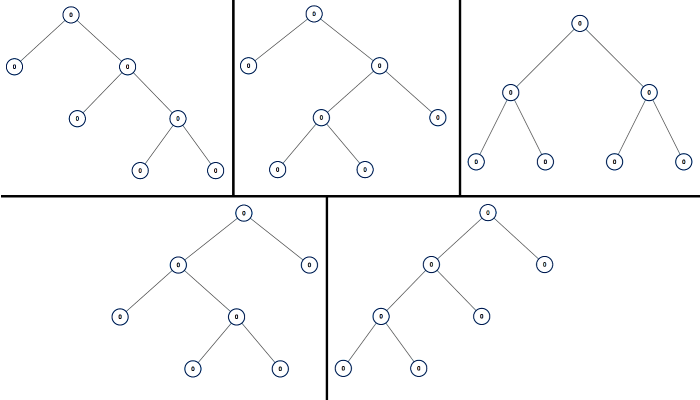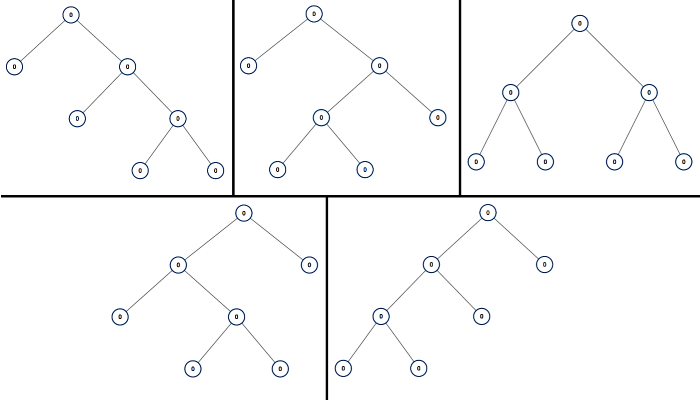A full binary tree is a binary tree where each node has exactly 0 or 2 children.
Return a list of all possible full binary trees with N nodes. Each element of the answer is the root node of one possible tree.
Each node of each tree in the answer must have node.val = 0.
You may return the final list of trees in any order.
Example 1:
Input: 7 Output: [[0,0,0,null,null,0,0,null,null,0,0],[0,0,0,null,null,0,0,0,0],[0,0,0,0,0,0,0],[0,0,0,0,0,null,null,null,null,0,0],[0,0,0,0,0,null,null,0,0]] Explanation:
Note:
1 <= N <= 20
Companies:
Google
Related Topics:
Tree, Recursion
// OJ: https://leetcode.com/problems/all-possible-full-binary-trees/
// Author: github.com/lzl124631x
// Time: O(2^N)
// Space: O(2^N)
class Solution {
public:
vector<TreeNode*> allPossibleFBT(int N) {
if (N % 2 == 0) return {};
if (N == 1) return { new TreeNode(0) };
vector<TreeNode*> ans;
for (int i = 1; i <= N - 2; i += 2) {
auto lefts = allPossibleFBT(i);
auto rights = allPossibleFBT(N - i - 1);
for (auto left : lefts) {
for (auto right : rights) {
auto root = new TreeNode(0);
root->left = left;
root->right = right;
ans.push_back(root);
}
}
}
return ans;
}
};